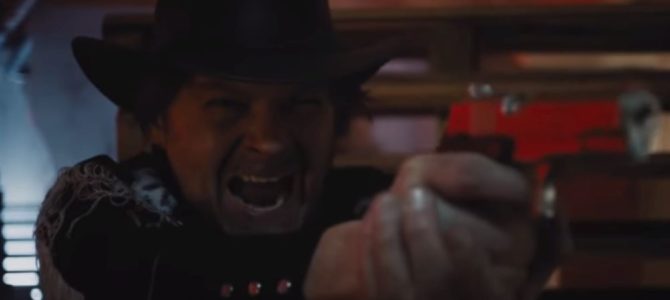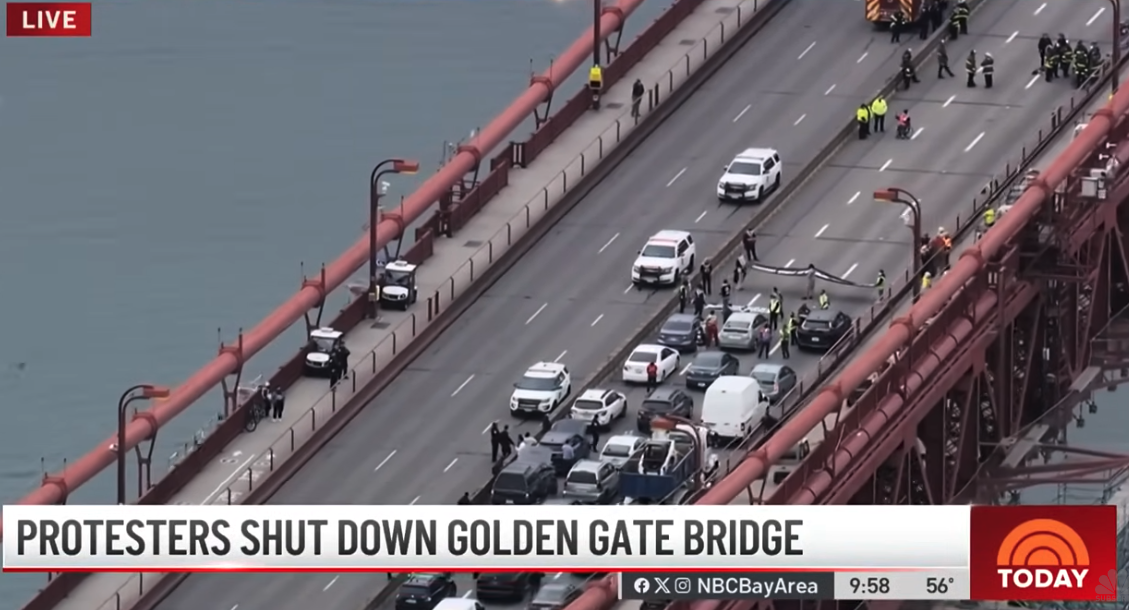
“Health care is a fundamental human right. Believing in some imaginary God is a form of insanity.” This is the tough rejoinder of a Communist cop to an American ambassador trying to save a priest from torture. The new six-episode Amazon series “Comrade Detective” is supposed to mock American propaganda—a murderer in a Reagan mask is the bad guy. But really it’s a send-up of liberal pieties.
Just listen to the protagonists, played with gusto by Romanian actors Florin Piersic Jr. and Corneliu Ulici, deliver their all-too-earnest lines. They play enforcers for a totalitarian tyranny, but you cannot distinguish their lines, such as the one quoted above, from your latter-day irate progressives.
The conceit of the show: Channing Tatum and his friends find an old 1980s police drama from Communist Romania and overdub the dialogue. The police drama format offers an ideal combination of earnestness and outrage, and an outlet for violence: you get to see the Left’s view of tough love in paradise.
You have to get through the first episode to realize what the satire is all about, but it’s worth it. After all, satire is almost extinct in American entertainment, replaced by endless streams of hackneyed political allegories running the gamut from paranoia to ignorance. I especially recommend the recurrent health-care talk. It sounds like Michael Moore praising Cuba, and the deadpan delivery is flawless.
Yo, Guys, These Crazies Act Like You Do
This may be the only daring comedy series out this year. Hollywood comedies get ever more conformist as they try to be transgressive, but now you get something really unique. Writers Brian Gatewood and Alessandro Tanaka, together with director Rhys Thomas and producers Tatum and John Hodges, attempt something as daring as Mel Brooks’s shocking mockery in the “Springtime for Hitler” show in “The Producers.” Now you get a Springtime for Lenin, Stalin, and the whole murderer’s row of Communist tyrants, and it’s played to the hilt.
The show’s view of American history, portrayed through a Soviet-propaganda montage, turns out to be exactly the same as that of college liberals. Happily, if the trade reviews are any clue, liberals have no awareness that they might be the target of the satire. So much for sophistication and a sense of irony.
How hard would it be to get it, though? This is a parody where the demonic underground cult, an early revelation of the story, turns out to be a Catholic Church. Smuggling Bibles and blue jeans is a horrifying attack on the social order. Outraged phrases like “handing out Bibles like candy” and “what poison is more toxic than organized religion” should give the game away. Yet the show is applauded for its irony and meta-humor in any number of liberal precincts.
It’s Funny Until You Realize It’s True
Tatum ironically says, in a Vice interview promoting the show, that “Die Hard” had a Russian bad guy and Americans were brought up on propaganda against Russia. The too, too English Alan Rickman, in his movie debut, played a German villain. It’s one of those telling details: nobody would be stupid enough to think Hans Gruber was Russian. Tatum is faking liberal pieties for reporters stupid enough to ask him whether he’s a Communist—or a liberal or a socialist, since apparently there’s no difference—because of his recent film ventures.
Now, I’m not against cultural appropriation, nor comic vulgarity, even if it means crass ignorance. I’m tickled pink that American studios think to use an ugly, gray world where people are killed for ideologically incorrect remarks scores points against Reagan. The story is peppered with jokes about informing, torture in police custody, and summary execution. These aren’t funny things, except in the sense in which black comedy is funny.
But this is the only way to attract the attention of a blithe audience to the perils of moral relativism and political equivalency: we had propaganda just like they did. The CIA equals the KGB. We find these jokes funny, in part, because we cannot take them seriously, but a satirist whose moral intention is clear only has to keep pushing up until the audience wakes up to the horror. And there’s plenty of moments for that in this comedy.
Why Cop Movies Only Work in America
Morality aside, there is also craft to consider. The show does well scouting locations to look like the ‘80s. Everything seems to have been filmed in Bucharest. I recognized many of the settings and detected continuity problems, but it holds up well regardless. The interiors, too, are fairly well done, and full of curiosities from the time.
But the camera work and editing are contemporary, as is the acting. The “Starsky and Hutch” outfits are no good either. They should have watched a few’80s movies to learn how to do an imitation. But on the other hand, perhaps the audience only wants to go so far from what is comfortable. After all, with every step you take toward seeing what 1908s Bucharest and Romania looked like, the less funny it gets.
Perhaps more realism about the regime and about the effect of Communism on Romania would have been useful, but it is not necessary. The comedy works here because of the confusions of our age of media. Consider that this show fakes a fake show, a parody of an American show, itself a kind of fake inasmuch as it was not true to the American situation.
But the work the comedy does is not supposed to limit itself to pointing out that confusion by perpetrating it on an unprepared audience. Instead, it’s supposed to show that the conventions of manly cop drama, silly as they are in America, really do speak to being American, and simply could not work in a totalitarian tyranny. None of the assumptions about human dignity that the genre relies on fit the other context.
That is ultimately the reason American movies were so influential even behind the Iron Curtain. In fact, seen from the side of deprivation, misery, indignity, and terror, American manliness, a form of individualism, looked much better than it would in America itself. It’s worth asking why Americans never made good movies about Communist situations. But it’s also worth asking why the most prestigious artists in America could not make movies that recommended themselves to audiences so desperately hungry for what America had to offer.
In some strange way, the genre productions especially were both true to America and true to the promise of political freedom, however mediocre and artless they often are. The best public diplomacy out there was not propaganda. It was confidently and unselfconsciously American mediocrity. It is much underrated and very hard to find nowadays.









